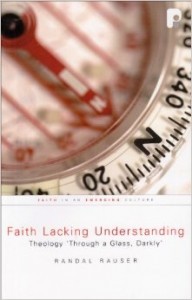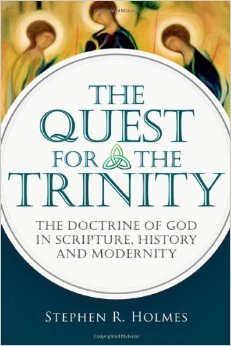Randal Rauser's Blog, page 157
March 11, 2016
The Unimaginable Torments of Hell
On January 3, 2015 the Jordanian pilot Muath Al-Kasasbeh was burned alive by ISIS. A video of the murder was later released online, evoking horror and outrage worldwide.
The other day I was in a conversation with a friend who told me he had watched the video of Al-Kasasbeh’s murder … and immediately regretted it. Now he could not get the haunting images of a tortured soul writhing in the flames out of his mind. As the saying goes, you can’t unsee that. Burning is surely one of the cruelest forms of execution imaginable. And my friend now had a more intimate knowledge of that fact than he had ever wanted.
It’s a well established fact that fire is among the central images of damnation that one finds in scripture. To take what is arguably the most disturbing of all these passages, in Revelation 14 we read:
“If anyone worships the beast and its image and receives its mark on their forehead or on their hand, 10 they, too, will drink the wine of God’s fury, which has been poured full strength into the cup of his wrath. They will be tormented with burning sulfur in the presence of the holy angels and of the Lamb. 11 And the smoke of their torment will rise for ever and ever. There will be no rest day or night for those who worship the beast and its image, or for anyone who receives the mark of its name.”
The person haunted by the unfathomable cruelty of Al-Kasasbeh’s execution might well wonder how a holy God could visit such a fate on human beings. Mind you, Al-Kasabeh’s suffering was spread out over minutes — albeit minutes that likely seemed to be an eternity. But those in the fires of hell face a hell that literally lasts an eternity as the smoke of their torment rises forever.
Enter the subtler theologian who points out that the average reader’s default literalism is highly questionable. Revelation is chock full of symbols, and it is very likely that images like “burning sulfur” and “rising smoke” are symbolic and thus not to be taken literally.
Alas, that brief respite from the horror is overcome with the additional observation that these unimaginably terrifying images are chosen precisely as a means to invoke degrees of suffering that we cannot otherwise imagine.
Let me put it this way. Imagine that I tell you that your arm is about to be sawn off with no anesthetic. To put it mildly, you would be disconsolate. Now imagine that as you look back at me in horror I add, “Oh, I don’t mean that literally. I’m speaking metaphorically.” Relief washes over your body … until I add: “The description of an arm amputation is a fitting symbol for the kind of suffering and subsequent incapacitation of bodily function that you are about to endure.”
Ouch.
That would be cold comfort, no? Indeed, if anything you might be even more worried now for the suffering is still guaranteed, but now it is coupled with the unknown.
The fate of Al-Kasasbeh is already absolutely terrifying. There are no words for the fate of Al-Kasasbeh multiplied by infinity. And as for the fate of Al-Kasasbeh multiplied by infinity and shrouded in the mist of the unknown?
Alas the English language hath no words…
March 10, 2016
A new review of Faith Lacking Understanding
 In my 2008 book Faith Lacking Understanding: Theology through a glass darkly I take the reader on an exploratory journey through seven doctrines in the Apostles’ Creed. After a prefatory chapter on theology, belief and confession, each subsequent chapter is devoted on one doctrine in particular: the Trinity, divine action in creation, incarnation, atonement, ascension, final judgment / hell. In each case, I highlight a challenge to the doctrine in question pertaining either to logic, morality, or plausibility. The book is intended to offer a clear and perhaps existentially unsettling introduction to deeper mysteries and paradoxes of Christian doctrine.
In my 2008 book Faith Lacking Understanding: Theology through a glass darkly I take the reader on an exploratory journey through seven doctrines in the Apostles’ Creed. After a prefatory chapter on theology, belief and confession, each subsequent chapter is devoted on one doctrine in particular: the Trinity, divine action in creation, incarnation, atonement, ascension, final judgment / hell. In each case, I highlight a challenge to the doctrine in question pertaining either to logic, morality, or plausibility. The book is intended to offer a clear and perhaps existentially unsettling introduction to deeper mysteries and paradoxes of Christian doctrine.
Yesterday, Emmanuel Sule of the website “Theology 4 All” published a very positive new review of the book . Sule kindly observes that “Rauser brings an unusual combination of scholarly manner and a powerful sense of humor in analyzing the creed.” He concludes, “scholars and those with passing acquaintance of theology or the Apostles’ Creed will be well served by reading this scholarly and amusing explanation of the Apostles’ Creed.”
I couldn’t agree more! You can read the full review here.
March 9, 2016
Sorry, this pew is paid for
The other day while I was reading up on the historic practice of parishoners renting or buying private pews in churches, I happened upon this fascinating article: “Sacred Mysteries: Renting the Best Seats in Church.” When I lived in England I visited a church which still had some old pews with locked gates that had been historically reserved for members of the gentry. I assumed the practice had fallen out of fashion long ago, but in the article Christopher Howse observes that the practice only ceased in 1970.
Incredible.
Howse also includes this 1882 description from a non-church goer who finally decided to visit the local church, only to realize all the pews were already spoken for:
“I did go once, but the people were all shut in, and the folk in the boxes looked at me as if I had got in without paying: so after walking up and down several times, like a man in a station trying to get a seat when the train is full, I went home.”
What a heartbreaking image. And you can’t help but wonder: how many visitors have ventured into churches over the years only to find all the pews paid for?
But lest we spent all our time in self-righteous indignation at the appalling blind spots of churches in a bygone era, let’s instead use the locked pew and cold stare as the opportunity to ask ourselves some hard questions: how many people dare to visit churches today only to receive a cold stare in return? How many people walk up and down the aisles several times, trying to find a seat, only to leave unwelcomed and defeated? How many people come seeking God only to find that all the pews are already paid for?
March 7, 2016
87. From the Bible to Doctrine: A conversation with Stephen Holmes

 Open up your trusty King James Bible, turn to 1 John 5:7, and read:
Open up your trusty King James Bible, turn to 1 John 5:7, and read:
“For there are three that bear record in heaven, the Father, the Word and the Holy Ghost: and these three are one.”
For many centuries this verse provided a powerful, eloquent, and theologically rich summary of the doctrine of the Holy Trinity, the locus classicus that could silence Arians and modalists with a single verse.
The only problem is that the bulk of that verse, along with most of the following verse 8, is now understood to be a later interpolation. The Comma Johanneum, as this passage is now known, is recognized to be a corruption of the text.
Contemporary versions of 1 John 5 contain decidedly more pedestrian, and altogether less theologically suggestive, content. For example, in the NIV that verse which once held the weight of the entire Trinity on its shoulders, is now reduced to the following phrase: “For there are three that testify…”
That’s it.
So here’s an interesting question. If the doctrine of the Trinity is not to be derived from a single verse, how do we justify it? And how do we justify other doctrines concerning matters of atonement, incarnation, church organization, spiritual gifts, sacraments, final judgment, and so on? In short, how do we move from the Bible, a library of documents written in three languages between two and three thousand years ago, how do we move from that document to the confessional beliefs that comprise Christian orthodoxy?
 That’s a great question, and kudos to me for asking it. In this episode of The Tentative Apologist Podcast we are going to grapple with that question and various themes relating to it in a wide ranging conversation with Dr. Stephen R. Holmes. Steve is the Senior Lecturer in Systematic Theology at the University of St. Andrews in St. Andrews, Scotland. He is also author of several books including The Quest for the Trinity: The Doctrine of God in Scripture, History and Modernity (IVP Academic, 2012) and Baptist Theology (T&T Clark, 2012). Steve is also one of the contributors to the recently published book Two Views on the Doctrine of the Trinity (Zondervan, 2014). You can visit him online where he blogs at http://steverholmes.org.uk.
That’s a great question, and kudos to me for asking it. In this episode of The Tentative Apologist Podcast we are going to grapple with that question and various themes relating to it in a wide ranging conversation with Dr. Stephen R. Holmes. Steve is the Senior Lecturer in Systematic Theology at the University of St. Andrews in St. Andrews, Scotland. He is also author of several books including The Quest for the Trinity: The Doctrine of God in Scripture, History and Modernity (IVP Academic, 2012) and Baptist Theology (T&T Clark, 2012). Steve is also one of the contributors to the recently published book Two Views on the Doctrine of the Trinity (Zondervan, 2014). You can visit him online where he blogs at http://steverholmes.org.uk.
As I said, this conversation is wide ranging as we consider scientific models and their relationship to doctrinal formulation, the impact of naïve empiricism, the concept of revelation, the perspicuity of Scripture, the doctrine of the Trinity and salvation, the role of community, and the meaning of that hallmark confession of reformation, Sola scriptura.
You can read my review of Steve’s wonderful (and challenging) monograph The Quest for the Trinity here.
March 6, 2016
Muslims, Christians, and Worship of the Same God: A quick response to the Unbelievable debate
I just finished listening to the February 27th edition of “Unbelievable” which featured a dialogue and debate between Joseph Cumming and Nabeel Qureshi on the question “Do Muslims and Christians worship the same God?” Cumming argued “yes” and “no” while Qureshi argued a more unequivocal “no”. The discussion started off on a promising note with Cumming helpfully clarifying the various nuances of the question. But alas, the conversation soon ventured off into more unhelpful directions. The main problem, as I see it, is that the nature of the question under debate was not clearly defined from the outset.
The question “Do Muslims and Christians worship the same God?” has at least three critical dimensions. More accurately, it is an ambiguous question that can be interpreted in (at least) three different ways.
First, there is the topic of linguistic reference: i.e. Do Muslims and Christians refer to the same divine being when they refer to God?
Second, there is the topic of worship acts: i.e. Do Muslims and Christians engage in acts of worship directed at the same divine being?
Third, there is the topic of salvific relationship: i.e. Are Muslim and Christian acts of worship sufficient to initiate and/or maintain a salvific relationship with the same divine being?
Although Qureshi repeatedly insists without qualification that Muslims and Christians do not “worship” the same God, it is clear throughout the conversation that both debaters assume the correct answer to the first question is, in fact, yes. This is because they both assume that Muslims and Christians disagree about the nature of God. Qureshi makes the point with especial force as he hammers on the point that Muslims deny that God is triune. or revealed in the incarnate Christ. But when Muslims and Christians disagree about whether God is triune or revealed in the incarnate Christ, they are clearly referring to the same being even as they disagree about the essential nature of that being or that being’s actions in history.
What about the second question? Here too it seems to me that both Qureshi and Cumming should again answer yes. If Muslims and Christians both refer to the same God then it follows that when they engage in acts of worship directed at God, they are engaged in acts of worship directed at the same being.
This leads me to the third question: salvific relationship. Justin Brierley asked Qureshi about this question explicitly at the end of the program. And interestingly, Qureshi answered that he doesn’t know. In other words, he believes it is possible that God may receive acts of worship directed to Allah (the false God) as if they were directed to him. (Think of the famous description of worship of the god Tash at the end of C.S. Lewis, The Last Battle.) My hat is off to Qureshi who, though an apologist for a conservative evangelical apologetics organization (RZIM), adopts an admirably nuanced hopeful inclusivism.
Unfortunately, these distinct topics were not clarified (at least explicitly) throughout the exchange. Instead, the conversation tended to proceed by Qureshi pointing out differences between Muslim and Christian theology and using these differences as a basis to conclude that the two groups do not “worship” the same being. Cumming, in turn, offered several pointed rebuttals. But throughout much of this back-and-forth, I was left wondering what was even being debated.
March 4, 2016
What happens when your abstract moral convictions encounter concrete reality?
I can’t claim to have followed the issue of transgender washrooms closely. But as I understand the topic, it concerns the rights of people who have a gender identity that contrasts with their biological gender to have access to the public washrooms which correspond with their self-understanding rather than their birth-gender.
In recent months the debate over transgender washrooms appears to have moved to the frontline of the “culture war” with advocates seeing it as a human rights issue and detractors dismissing it as another example of the subversive deconstruction of biological reality coupled with social engineering gone awry.
When it comes to deeply controverted topics like this, the salient question arises: what role should experience play in forming our perspectives on the ethics and social policy dimensions of an issue like transgender washrooms? Put more generally, when should concrete reality force the revision of abstract principles?
These questions came to the foreground for me the other day when I read the following article at Slate: “South Dakota Governor Vetoes Bathroom Bill After Meeting Actual Trans People.” Here is a practical distillation of that core question. Should we allow the personal narratives of real people to revise our general convictions about transgender people accessing their preferred washroom?
Consider some other examples:
We read the words of Jesus that any person who divorces for anything other than marital unfaithfulness and then remarries is an adulterer. And then our best friend’s marriage tumbles into divorce for something other than marital unfaithfulness and now, three years later, he/she is considering entering the world of dating again.
We insist that we are pacifists and we decry war and military intervention the world over. Then we learn of a genocide unfolding in a far flung region of the world and must contemplate support for military intervention to stall the slaughter.
We decry abortion under any circumstances save the life of the mother. Then we learn of a psychologically shattered fifteen year old pregnant with her father’s child.
When we encounter these new situations in all their distressing concrete particularity, do we retain our unshakeable moral principles in all their austere inviolability or do we begin to whittle them down with nuance and qualification?
Yes.
March 1, 2016
Unveiling the title for my forthcoming book with Justin Schieber…
I just heard back today from my editor at Prometheus on their proposed title for our forthcoming book. And here it is:
An Atheist and a Christian Walk into a Bar…: Talking about God, the Universe, and Everything
Do atheists marginalize God? Do apologists marginalize atheists?
Jeff Lowder just sent me a link to an article titled “Evidence for the Romans 1 Suppression Thesis” from a blog called Investigative Apologetics. As you might have guessed, what the “Investigative Apologist” refers to as the “Suppression Thesis” is what I refer to as the “Rebellion Thesis.” In short, it is the idea that atheists are actively suppressing their natural knowledge of God and are thus in rebellion against God. (The main difference is that the Investigative Apologist defends the Rebellion/Suppression Thesis whereas I reject it.)
The Investigative Apologist begins by pointing out that he/she has observed that atheists frequently exhibit “hypocritical double-standards and selective hyper-skepticism” that favor their beliefs. Having established that point, in the following passage the Investigative Apologist lays out the core of the argument:
“I note that the ‘Suppression Thesis’, an idea born out of Romans 1, is the claim that unbelievers know that God exists and yet suppress this truth for moral rather than rational reasons, and in contemplating this idea, and in remembering that some fact or observation counts as evidence for one hypothesis (H1) over another (H2) if that fact or observation is more likely / more expected on the first hypothesis (H1) rather than the second (H2), I would like to argue that I believe that one piece of evidence for the Suppression Thesis is the fact that, as stated earlier, many atheists and other non-believers routinely use those hypocritical double-standards and selective hyper-skepticism to argue for their own position and against theism, which is, I contend, precisely what would be expected if the Suppression Thesis were true (for it would be expected that unbelievers wold use any means necessary to suppress the truth in such a case) but not what would be expected if the Suppression Thesis was not true….”
In reply, I’d like to offer the ‘Smear Thesis’:
I note that the ‘Smear Thesis’, an idea born out of my book Is the Atheist My Neighbor?, is the claim that believers impute the Suppression/Rebellion Thesis to atheists on the flimsiest of evidence because of a dislike of atheists and a desire to marginalize them and their opinions, and in contemplating this idea, and in remembering that some fact or observation counts as evidence for one hypothesis (H1) over another (H2) if that fact or observation is more likely / more expected on the first hypothesis (H1) rather than the second (H2), I would like to argue that I believe that one piece of evidence for the Smear Thesis is the fact that, as I establish in my book You’re not as Crazy as I Think, many evangelicals and other believers routinely use those hypocritical double-standards and selective hyper-skepticism to argue for their own position and against atheism, which is, I contend, precisely what would be expected if the Smear Thesis were true (for it would be expected that believers wold use any means necessary to suppress the truth in such a case) but not what would be expected if the Smear Thesis was not true….” (Paraphrased with appropriate substitutions from the article “Evidence for the Romans 1 Suppression Thesis”)
February 29, 2016
Rebranding Donald Trump: Lessons from John Oliver
Over the last couple years I’ve been fascinated by the rise of John Oliver and his incisive Sunday night program Last Week Tonight with John Oliver. The heart of Oliver’s program is a 15-20 minute monologue which looks for all the world like a contemporary secular sermon for the millennials. With sardonic humor and a surgeon’s scalpel Oliver exegetes his topic of choice each week, leaving his audience informed and entertained. But the entire program is driven by a prophet’s fury at the state of the world and a desire to change it.
This week Oliver turned his attention to Donald Trump. Like many commentators before him, he analyzes Trump as a dangerous, hateful phoney narcissist who cares only about propagating his brand. But unlike countless critics before him, he doesn’t get caught in the trap of being pulled into the gutter with his nemesis.
Contrast that with Marco Rubio, for example, who has decided to take on the Trump brand by capitulating to his nastiness. And so Trump mocks the size of Rubio’s ears (large) while Rubio mocks the size of Trump’s hands (small). With this sorry display Rubio illustrates the sober wisdom of Proverbs 26:4: “Do not answer a fool according to his folly, or you yourself will be just like him.”
By contrast, Oliver is never pulled into the gutter as he builds toward the climactic revelation that Trump’s ancestor changed their last name from “Drumpf”, a revelation that culminates in Oliver’s brilliant rebranding effort to “Make Donald Drumpf again.” With this masterclass bit of social commentary Oliver illustrates the liberating wisdom of Proverbs 26:5: “Answer a fool according to his folly, or he will be wise in his own eyes.”
You can watch the episode below. And be sure to watch Seth Meyers’ devastating 2011 take down of Trump as well.
February 27, 2016
The Silver Lining on Is the Atheist My Neighbor?
It’s been almost nine months since Is the Atheist My Neighbor? was published. As many of you know, the dark cloud since then is that despite sending out multiple review copies to atheist bloggers and podcasters who either requested the book or agreed to review it, not a single review has appeared. (I already blogged about this phenomenon back in September in “Apathy, Hostility, and Is the Atheist My Neighbor?“ At that time I’d sent out 10-12 copies. I’ve since sent out two more copies for review. Not a single review has appeared since then.)
But as I noted back in September, the silver lining is that those who read the book have really appreciated it. And that also hasn’t changed. The most recent example is Dr. Louise Antony, Professor of Philosophy at the University of Massachusetts. I sent Professor Antony a complimentary copy a few weeks ago. (In the book I recommend Antony’s edited volume Philosophers without Gods.) I heard back this week that she very much appreciates the book and plans to use it in the future when she teaches philosophy of religion.
So all the feedback I’ve heard from Christians and atheists alike (including important philosophers like Antony and J.L. Schellenberg) has been unreservedly positive. And I take solace in the fact that I’d rather write a good book that gets ignored than an irresponsible screed that climbs the bestseller lists. (Just don’t tell my publishers I said that!)




